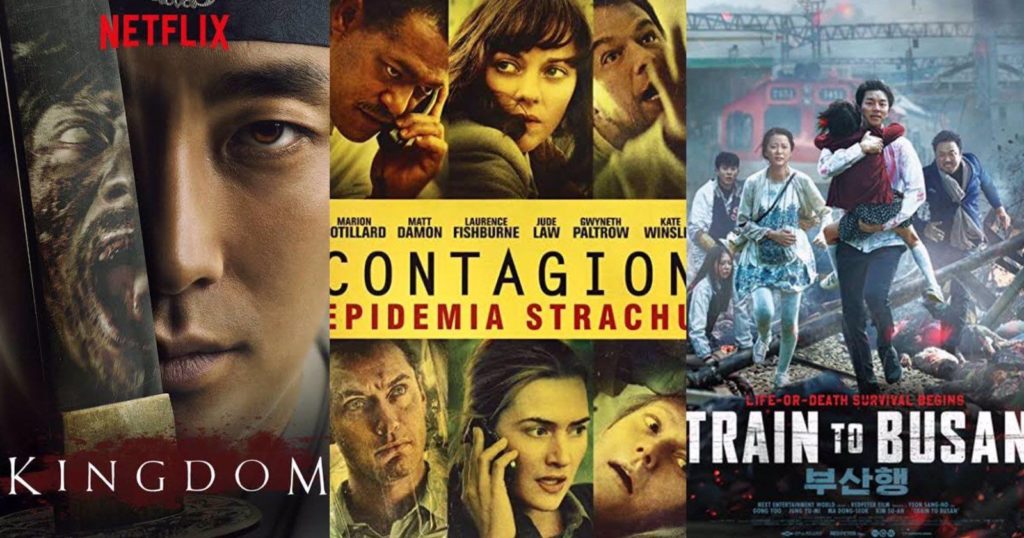The following #POPCreators entry was submitted by Camille De Leon. The piece has been published “as is,” without any editorial intervention. The InqPOP! staff assumes no liability for any error in the content of this material.
***
It feels like a long time since we only got to watch virus spreading around the globe through films and series, and now we’re actually dealing with a pandemic. It may sound weird but every time heard virus, the word “zombie” will automatically pop up on my mind as if these two words are synonymous. And it seems like many people think the same as Contagion, a 2011 film and other pandemic movies are spiking amidst Covid-19 situation.
Well, for good thing, this coronavirus totally wasn’t the start of a zombie apocalypse.
It’s a very stressful time for everyone around the world, but it seems like the popularity of epidemic stories are surging. So why is it that we’re drawn to these kinds of flicks?
According to Dr. Katherine Foss, the author of the forthcoming book “Constructing the Outbreak: Epidemics in Media and Collective Memory,” many people actually find relief in these films.
“With the true virus movie, you have a resolution,” Foss said. “And I think that’s why it’s popular right now — because it’s comforting to see not so much the explanation of the crisis, but it’s that resolution.”
That resolution, Foss said, requires scientists who miraculously turn out enough vaccines to immunize the population and everything goes back to normal.
“I think that’s what people are really craving right now,” Foss said. “It’s getting that reassurance, even though it’s fictional, that things can go back to normal.
Another reason why we watch these movies because they help us to release our anxiety and fears deep inside our consciousness.
The Greek Philosopher Aristotle introduced “catharsis,” which is a process where we release our negative emotions by watching violent or scary movies. In other words, they help us to “purge” our aggressive emotions. We also burn our negative feelings and worries about the real world and expel them by watching horror films.
And it seems like watching apocalyptic movies has a positive effect on our mental health.
A new study has found that fans of movies and shows featuring the likes of attacking zombies, aliens and infectious diseases cope better in times of crisis, including the coronavirus pandemic.
They came to the conclusion that those who liked horror stories appeared less distressed by the crisis than the majority, and the ones who enjoyed so-called “prepper movies” (apocalyptic movies where society collapses) showed that they are more resilient and prepared.
Mathias Clasen, one of the recent study’s co-authors, noted that by experiencing fictional scenarios, we become better prepared for when those scenarios become real life. “Compared to somebody who has never simulated the end of the world, you’ll be in a better place because you have that vicarious experience.” he said.
It appears that zombie apocalypse movies provide us not just distraction but surprisingly, it provides comfort and familiarity with the crisis situation.
These are some zombie and pandemic films you should try to watch:
American Films/ Series: Contagion, I am Legend, World War Z, Walking Dead, Resident Evil, Outbreak
Korean Films/ Series: Kingdom, Alive, Flu, Train to Busan and Train To Busan: Peninsula
______
DISCLAIMER: All views and opinions expressed in this post are solely those of the contributor/s and do not represent those of InqPOP! and INQUIRER.net. All InqPOP! Creator Community submissions appear “as is,” without any editorial intervention. The InqPOP! staff assumes no liability for any error in the content of this material. Got something you want to share to the world? Get a chance to publish your awesome creations and share it to the world through our InqPOP! Creator Community program. Send us your stories, videos, photos, fan fic, and even fan art at pop@inquirer.net
For more details, read the POP! Creators FAQ page.
